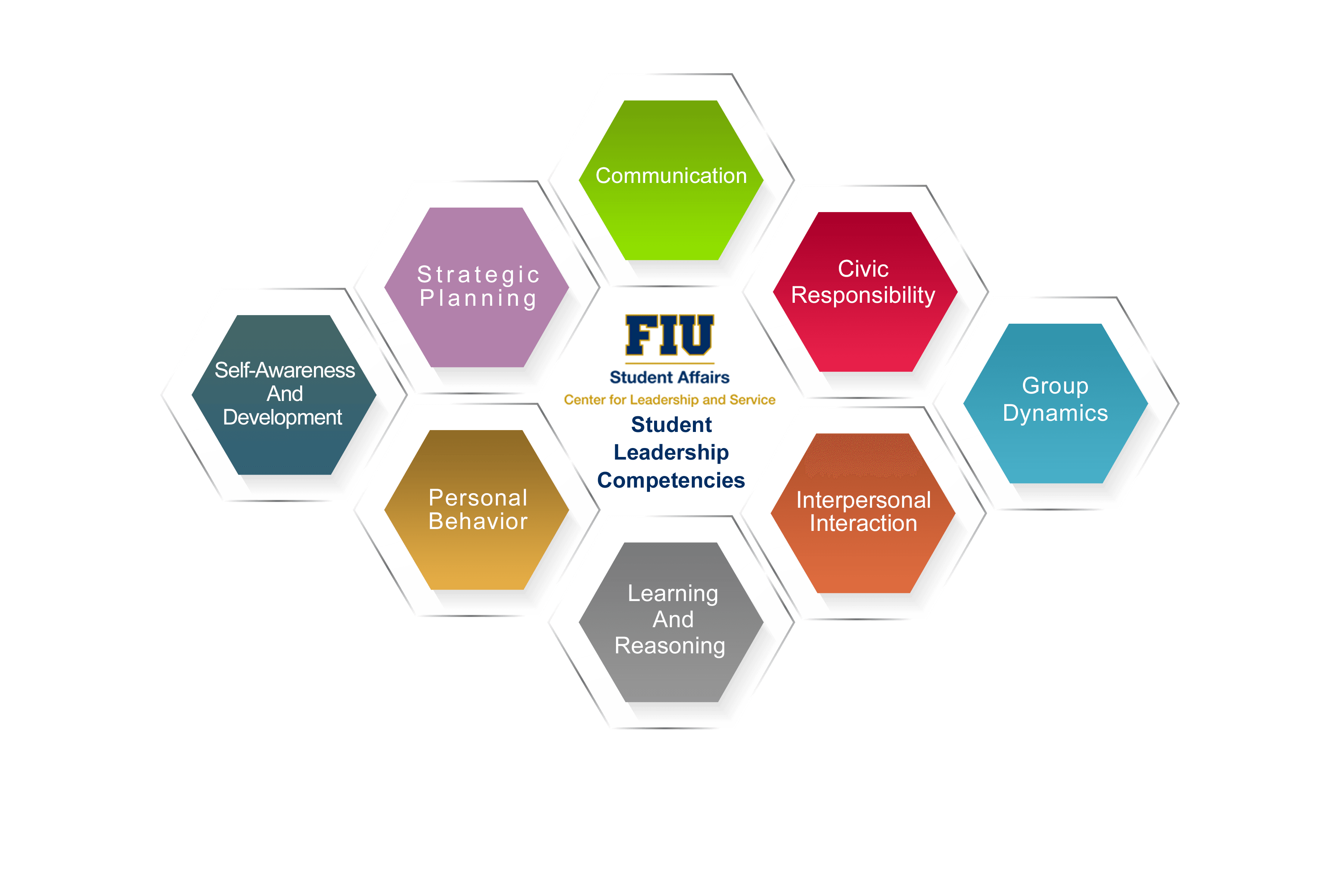FIU Student Leadership Competencies

Adapted for use at FIU's Center for Leadership and Service from the Student Leadership Competencies by Corey Seemiller.

Adapted for use at FIU's Center for Leadership and Service from the Student Leadership Competencies by Corey Seemiller.
In Fall 2014, FIU's Center for Leadership and Service reevaluated their student leadership competencies to align them with research that had been conducted at the University of Arizona. After the 5 year study, 23 additional accrediting organizations from the Association of Specialized and Professional Accreditors and the U.S. Department of Education. This resulted in 60 competencies with 4 dimensions each, knowledge, value, ability, and behavior. More information about this study and resources for all 60 competencies can be found at studentleadershipcompetencies.com.
Students
Faculty/Staff